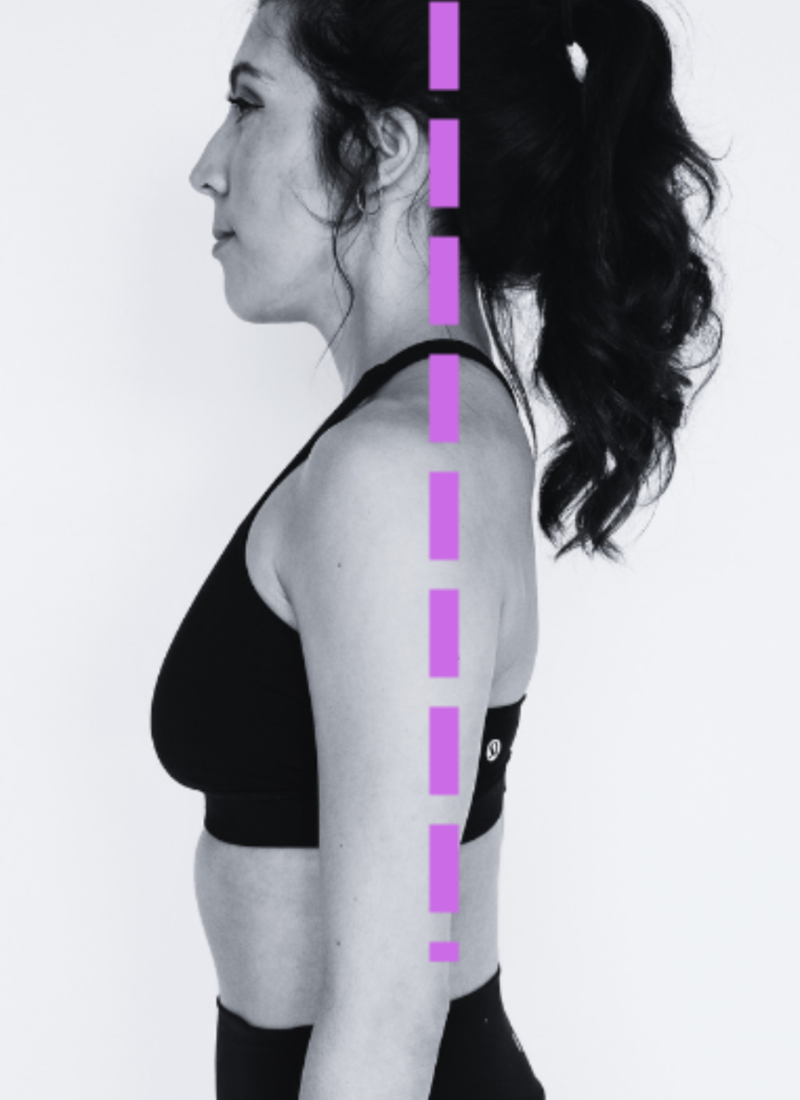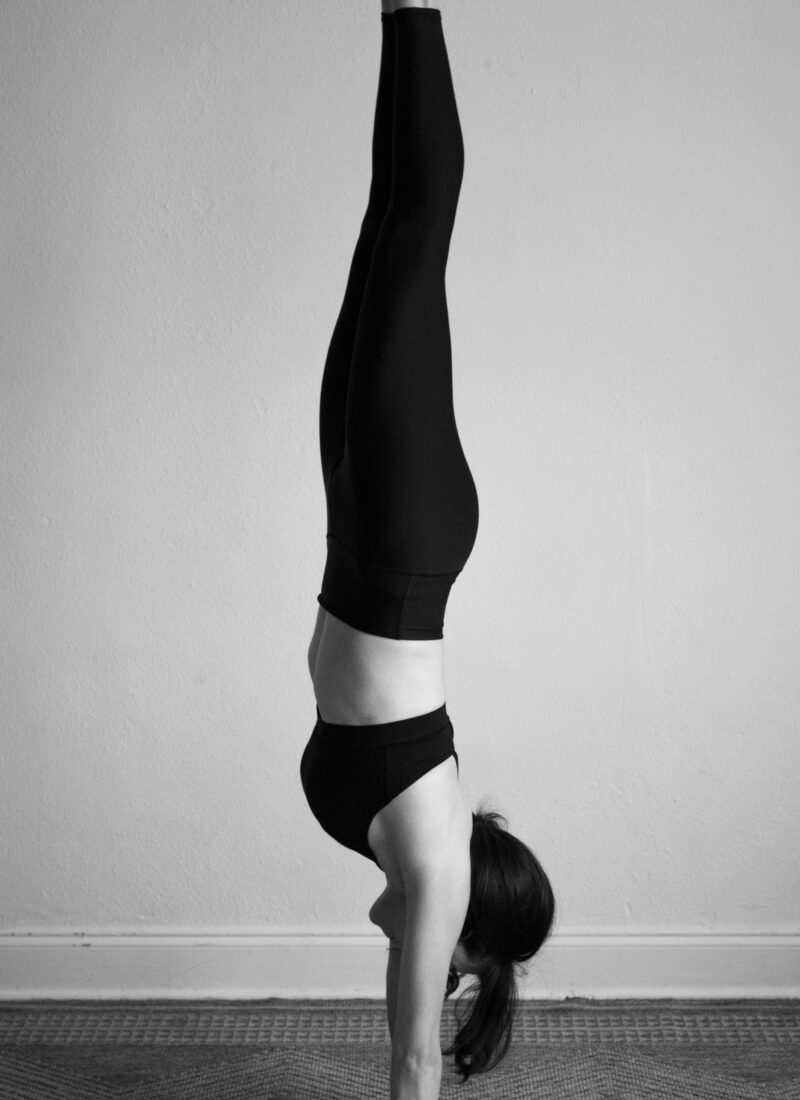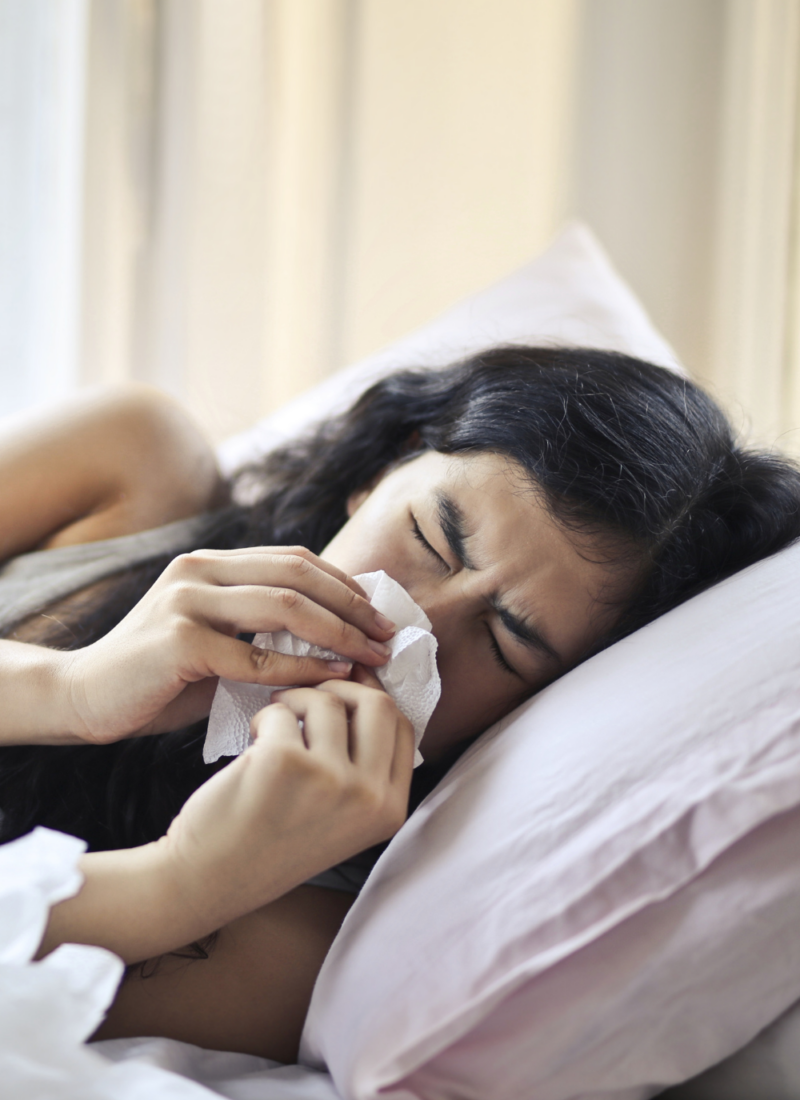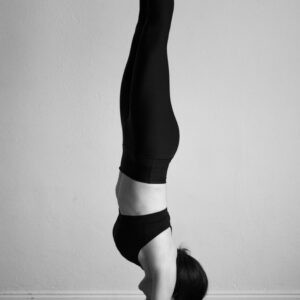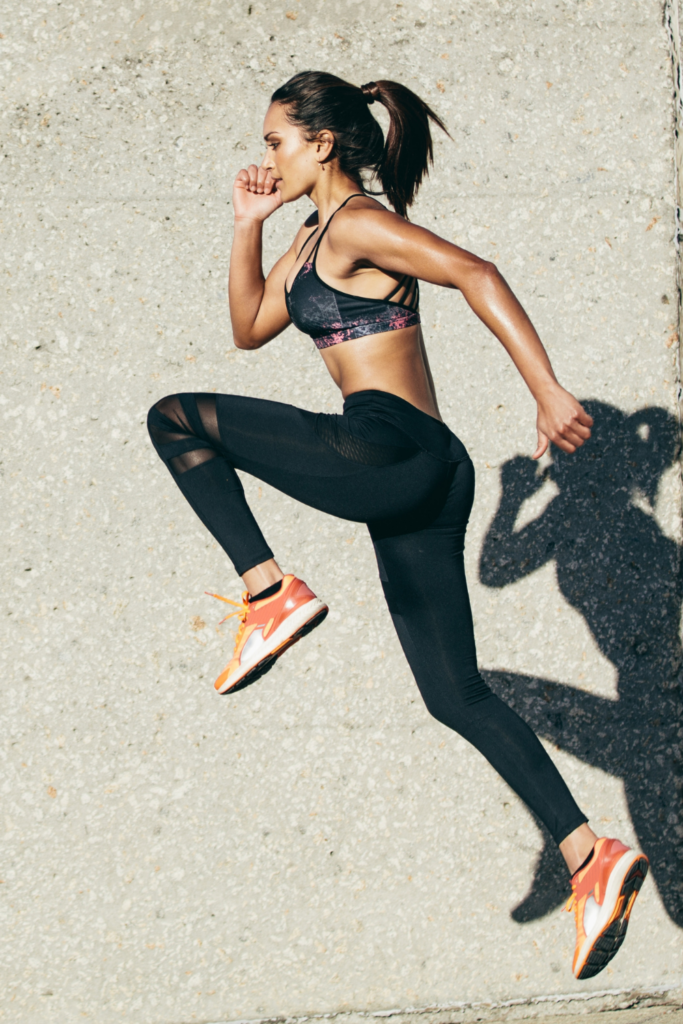
Should you work out after eating? You’ve probably heard of that old rule of thumb to wait an hour after eating before you go swimming. Are you wondering when is the best time to workout, and you don’t want to schedule it too closely to when you have meals?
Let’s dive deeper into the science and wisdom around this topic, and discuss a few common rules of thumb.
Should You Work Out After Eating?
Basic Facts
Food is fuel for our bodies, and therefore, eating before a meal is vital in energizing us to perform our best during our workouts.
When we eat, food enters our stomachs and is slowly propelled from organ to organ through muscular contractions called peristalsis.
Simply, the bigger the meal, the longer it will take for your stomach to digest all of the food. How long you wait before eating depends on how much you ate and it depends on the individual.
Sometimes exercise immediately after eating can cause gastrointestinal (GI) discomfort, such as bloating or cramping. This won’t lead to optimal performance either, as your body is dealing with the competing demands of your digestive system and your muscles.
For most, one to two hours is enough time after a moderate-sized meal, while waiting at least 30 minutes after a snack is also fine.
With all that being said, the intensity of the exercise plays a factor in the possible side effects.
Pros and Cons of Exercising After Eating
Pros
One of the main issues with exercising on an empty stomach, such as the first thing in the morning after waking up, is that your glycogen or fuel reserves are either empty or near empty. This can lead to not having enough energy to get through a workout and feeling sluggish, nauseated, or having a headache. In more serious cases, you can even faint if your blood sugar is too low.
Eating a snack before a workout will help energize you to perform at your optimal ability and help ensure your blood sugar levels are adequate for physical expenditure.
Cons
The biggest con, and probably the most obvious one, is that exercise right after eating may cause stomach distress such as nausea, bloating, and cramping.
Your body uses energy to digest food, and when you exercise you are shunting that energy away from your digestive tract and towards your muscle groups. Because of this, digestion nearly stops in its tracks, and whatever is in your stomach is going to basically just stay there until your workout is done and energy can be restored back into your digestive system. This can lead to GI discomfort.
Things Everyone Should Consider
1. How Much Time Has Passed
Think about the food you’ve consumed in the greater context of everything else you’ve eaten that day. For instance, if you workout first thing in the morning, you haven’t eaten anything all night, so it has been hours since your last meal. Therefore, your snack before your workout will be the only thing you have had in many hours.
On the other hand, if you exercise after work, it is safe to assume that you have eaten breakfast and lunch, and maybe snacks too. All these things considered, you have more nutrition on board. Therefore, you can probably get by with a light pre-workout snack or none at all, assuming you ate enough food at lunch to supply you with ample energy for your workout.
2. What Food Did You Eat
Certain foods will take longer for your body to digest, and thus you will need more time of physical rest to allow your body to do its thing – process all the food you ate.
Additionally, the greater the calories, the more time it will take for your body to move the food from your stomach, to intestines, and further down the GI tract.
Further, the more you eat as far as volume goes will factor into how long it takes to digest the food. The bigger the food, the longer it takes to process.
In specific nutritional terms, foods that contain fiber and fat, and sometimes protein, take longer to move through your digestive organs.
Therefore, if you plan to eat right before working out, stick with simple carbohydrates like fruit, toast, rice cakes, sports drinks, or crackers.
3. Every Individual Is Different
Some people are born with “iron stomachs” so to speak, and they can workout after eating with minimal issues. Others, however, have more sensitive digestive systems and need ample time to let their food settle before physical activity.
Figuring out how your stomach reacts to working out after eating will take some trial and error on your part. As you learn to fit exercise into your routine, you are going to figure out your rhythm for which time of day works best for you for optimal performance and minimal stomach discomfort.
4. Eating Too Close to Exercise May Affect Your Performance
The amount you eat and the type of exercise that follows will factor into your performance. For some, exercising too soon after eating may cause unwanted side effects. One study in male basketball players suggested that exercising right after eating caused feelings of sluggishness, nausea, belching, and stomach bloating when a protein and carb meal was consumed before training, compared with eating a high carb meal without protein.
In summary, they found that eating just a carb before athletic exertion was best.
Eating heavy proteins before athletic events may cause unwanted symptoms that may hinder your athletic performance.
What Are The Best Snacks Before a Workout?
For Short Duration, High-Intensity Exercise
As mentioned previously, a large meal may not be optimal before an intense workout. Instead, I recommend eating a snack packed with carbohydrates that break down quickly to provide you with energy. Some good snacks to eat follow below:
- Bananas
- Nut Butter on Toast
- Yogurt
- Granola
- Energy Bars
For Long Duration, Low-Intensity Exercise
If you are doing any low-intensity, but longer workouts such as long swims, runs, hikes, or bike rides, you are going to need to fuel up greater in advance and with more food. This will help give you the energy you need to sustain such a long duration of physical exertion.
It is recommended you eat two to three hours before activities of long duration. You should fuel up on a mixture of carbohydrates and protein such as:
- Eggs and Toast
- Peanut Butter and Banana
- Yogurt with Fruit
How Long Should You Wait After Eating Before an Extensive Workout, Such as a Marathon?
Extreme long distance runners will also want to eat high carb meals well in advance of an endurance event such as marathon, triathalon, or iron man. Carb-loading two to three days before a race with pasta, rice, and potatoes is recommended by some dieticians.
Your body relies on carbohydrates in your bloodstream and fats to fuel your endurance race. You’ll need to fill up the tank by eating lots of carbs in advance of this event.
It’s best to carb up in advance as it’s really uncomfortable to try and run with a big meal you just ate sloshing in your stomach.
Just don’t show up at the starting line hungry. Eat a high carb snack such as a banana, piece of toast, or energy bar 30 minutes to one hour before the race begins.
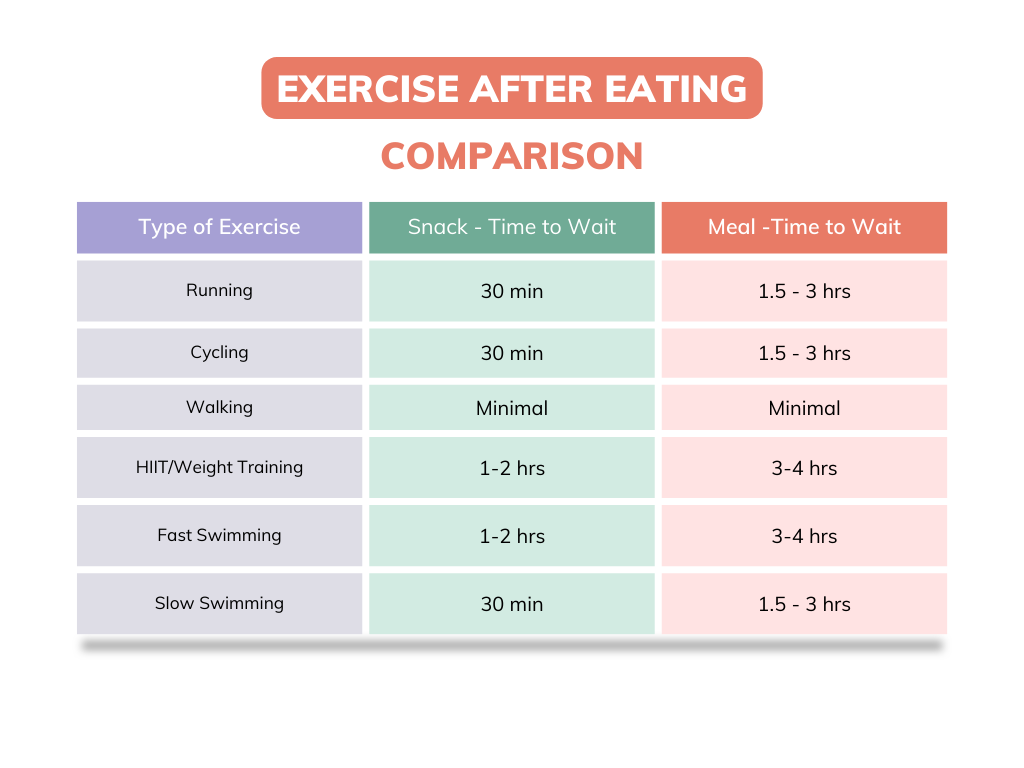
You May Also Like: Should You Workout When Sore?
This Article Was All About Should You Work Out After Eating
The Takeaway
Ultimately, it’s up to you to decide if you feel physically ready to exercise after eating. With experience, you will learn to listen to your body’s cues and understand what foods work best for you before working out.
This article was all about answering the question, “Should you workout after eating?” I hope you found this article helpful as you progress along your health and fitness journey.

